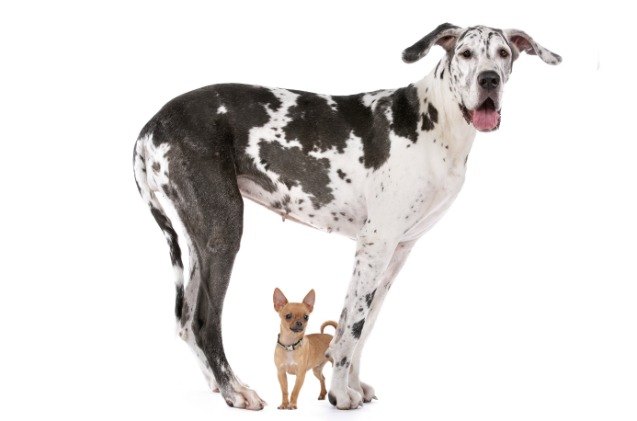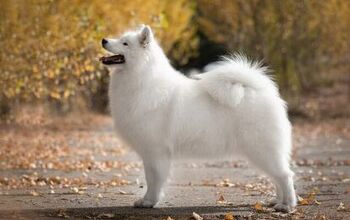Research Suggests Bigger Dogs Have Better Self-Control and Memory

A new study led by the University of Arizona suggests that bigger dogs who have larger brains are smarter in certain measures of intelligence than their smaller canine companions who have smaller brains.
Daniel Horschler is a doctoral student with the University of Arizona’s anthropology program and also a member of the UA’s Arizona Canine Cognition Center. He is the lead author of the study and said that larger-brained dogs performed better in tasks that measured their executive functioning skills. Executive functioning skills manage the cognitive processes that control and coordinate other behaviors and abilities the brain–motor planning and coordination included. Horschler said that bigger dogs have better short-term memory and also better self-control (ability to control impulse) than smaller dogs.
Related: Science Says Dogs Are Smarter Than Cats
He doesn’t necessarily know why bigger-brained dogs are better at executive functioning abilities than smaller dogs but he believes that the correlation is an indicator of something else going on–possibly the number of neurons the dogs have or even the differences in the connection between neurons in a bigger-brained dog vs. smaller-brained. He is excited to dig deeper to see if they can find out what those other issues may be.
The study did not find that a dog’s brain size matters in all types of intelligence, though. For instance, the study did not find that brain size had any real correlation with a dog’s abilities in social intelligences. They looked at how dogs followed human pointing gestures and, and they also looked at their inferential and physical reasoning abilities and didn’t find differences based on brain size.
The research reinforces other scientific studies that have shown that brain size was associated with executive functioning performance in primates, but not necessarily with other types of cognitive abilities or intelligence.
Horschler said that because the other studies have mostly or entirely used primates as subjects, it’s not clear if that correlation is unique to a primate or the evolution of a primate’s brain. He thinks that is why dogs are great for this study because there are such variations of sizes of the brain in the canine species–citing the brain sizes of teacup chihuahuas with Great Danes and all the breeds in between.
His research was based on data from over 7,000 purebred dogs of 74 different breeds and used breed standards for brain size information. He looked at short-term memory, self-control, and took into account the levels of training dogs may have received.
Related: Barking News: Your Dog is Smarter Than You Think
When it came to the treat portions of the study, looking at short-term memory and self-control, smaller dogs typically had more difficulty remembering where treats were as well as waiting patiently to get the treat.
Horschler said that he wants to continue researching the cognitive abilities of various breeds who have different sizes–for instance the differences between a miniature poodle and a standard. He believes that the brain size is certainly related to cognition, but wants to know if it’s specifically brain size or something else that correlates.

More by Lori Ennis























